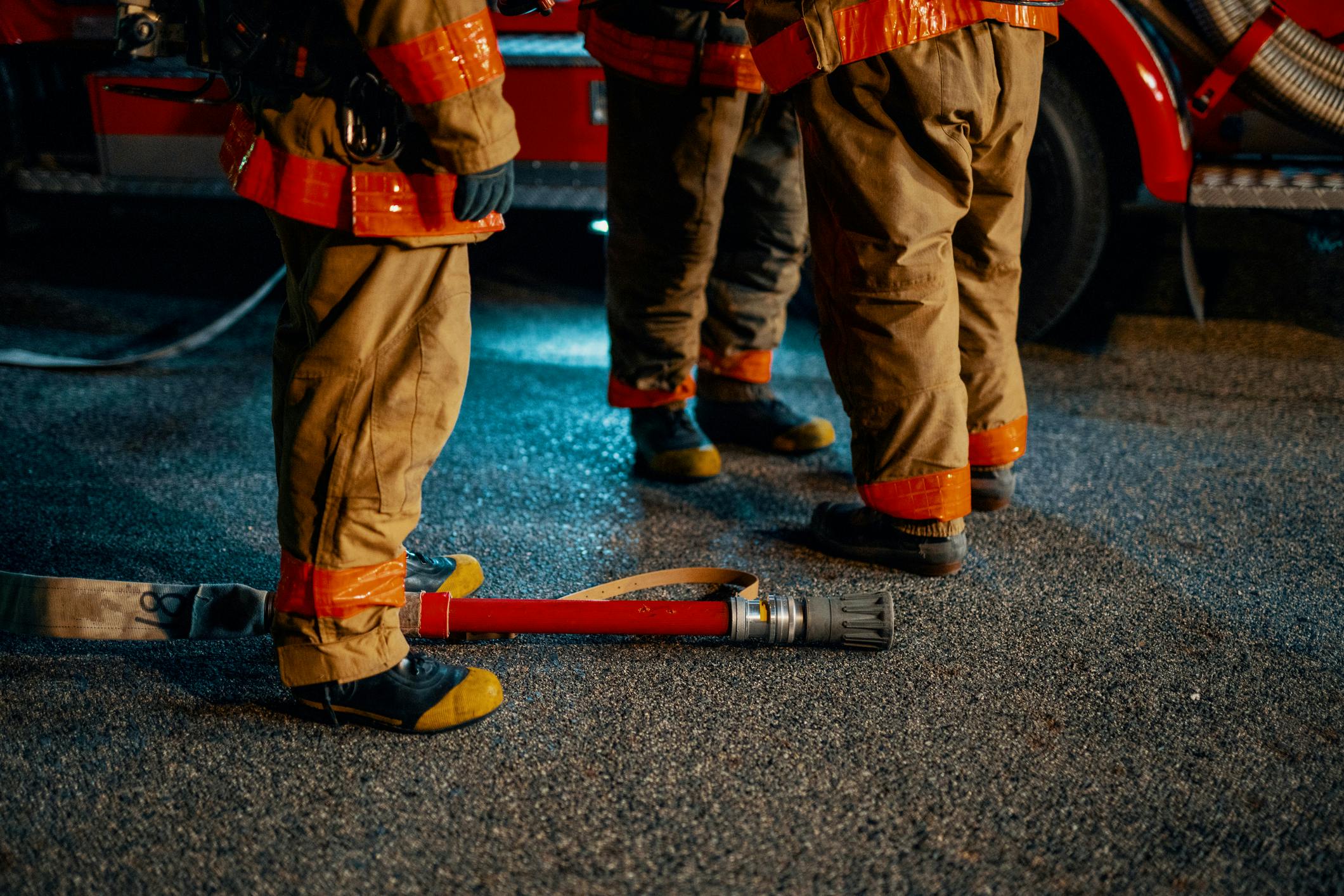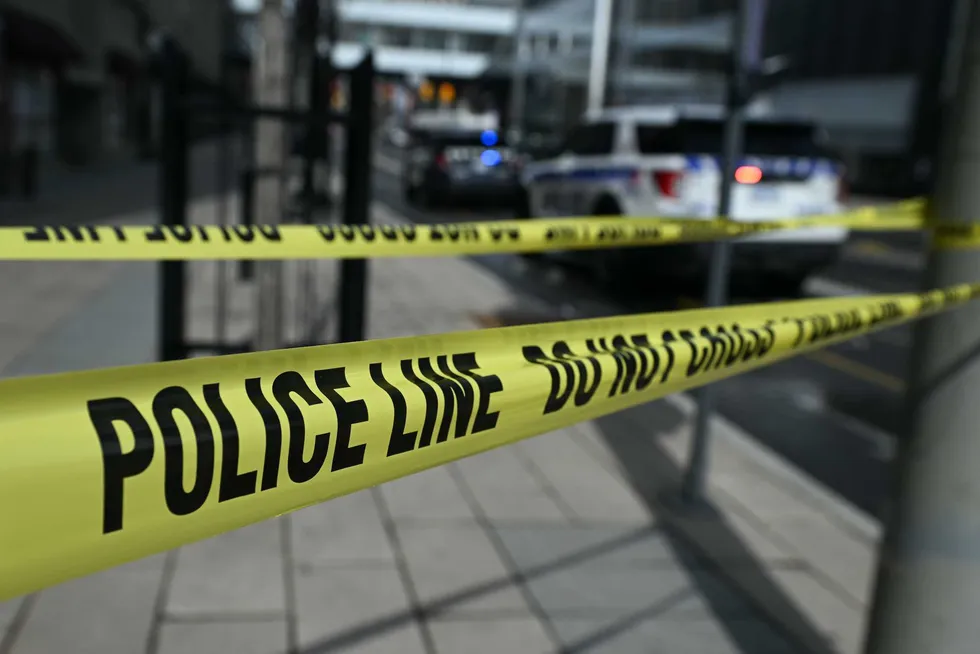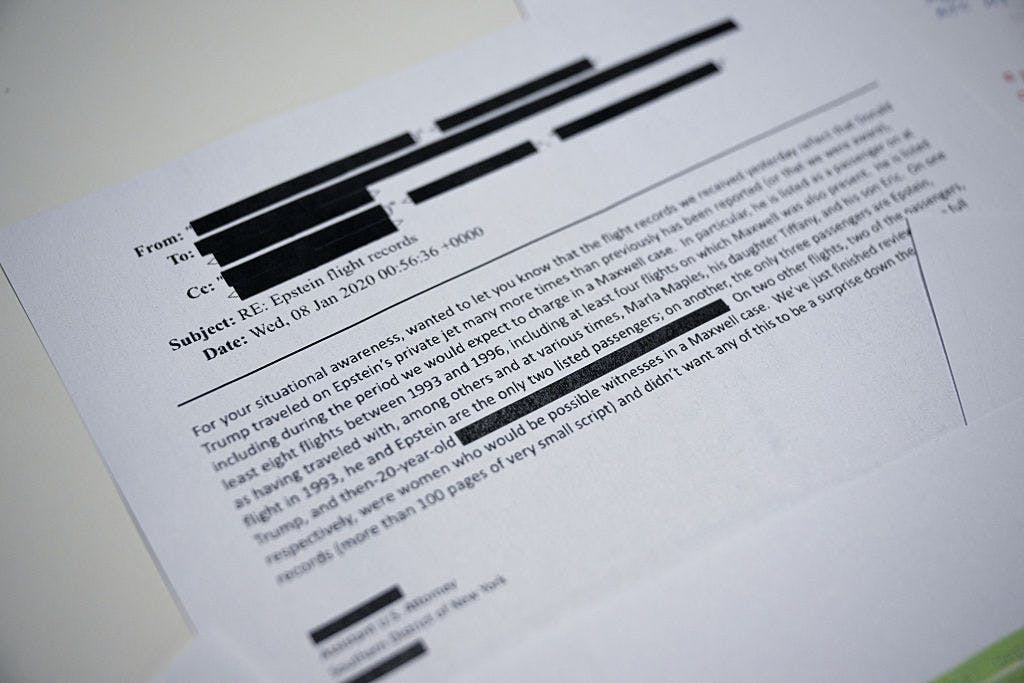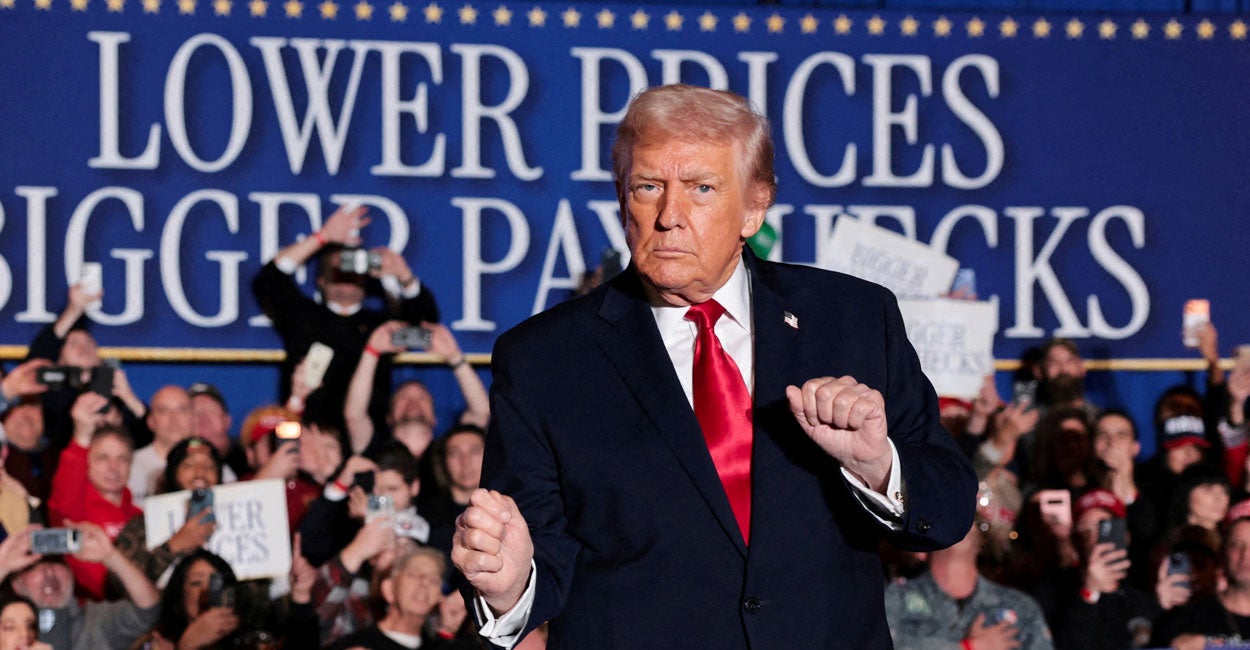USDA exploring possibility of mass vaccinations for American poultry despite RFK Jr.'s warnings
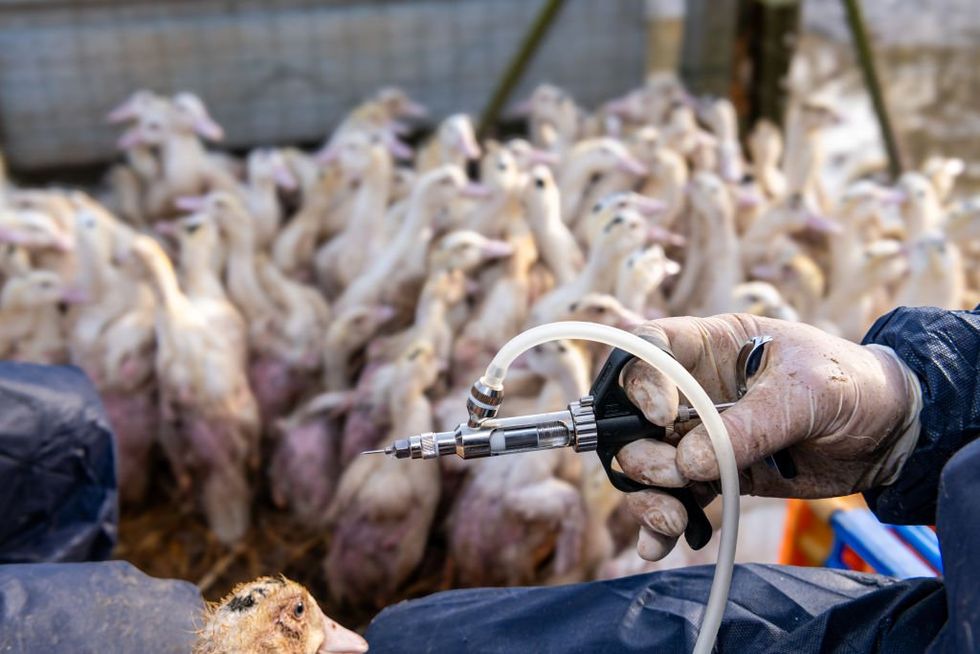
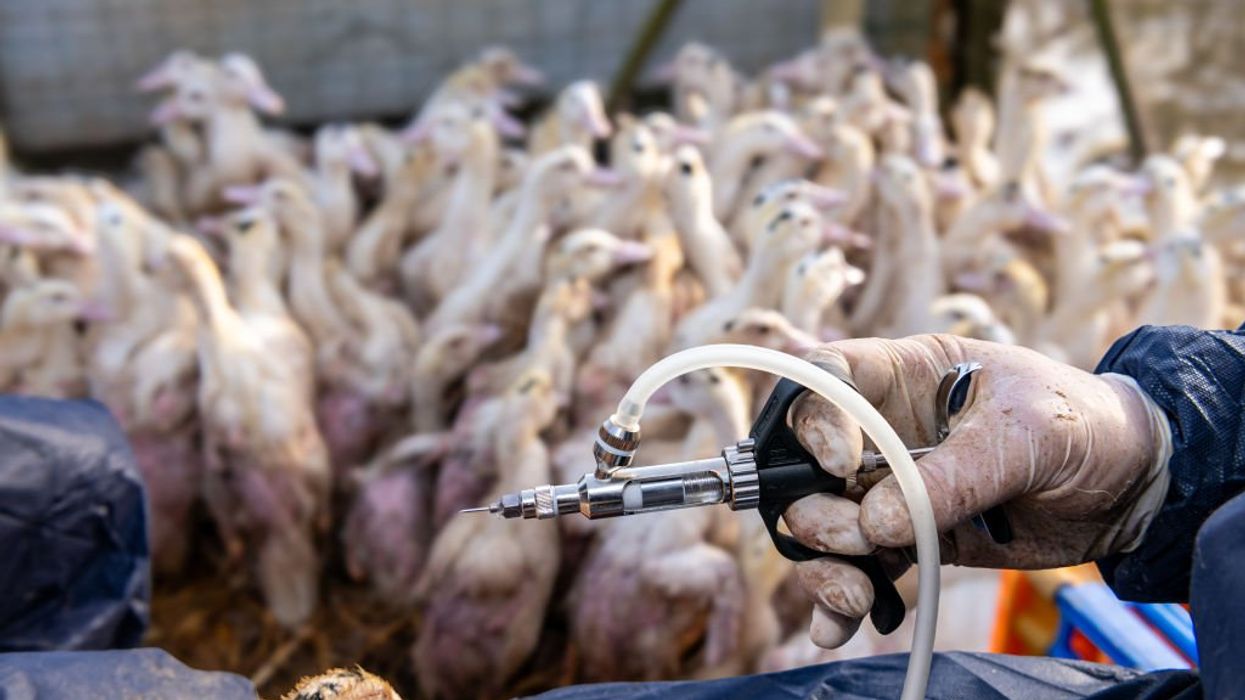
Health and Human Services Secretary Robert F. Kennedy Jr. warned earlier this year that vaccinating poultry against highly pathogenic avian influenza A (H5) viruses might transform farms into incubators for mutant viruses — viruses that could potentially leap to humans.
Live Your Best Retirement
Fun • Funds • Fitness • Freedom
"All of my agencies have advised against the vaccination of birds," Kennedy told Fox News' Sean Hannity, "because if you vaccinate with a leaky vaccine — in other words, a vaccine that does not provide sterilizing immunity, that does not absolutely protect against the disease — you turn those flocks into mutation factories."
"They're teaching the organism how to mutate," continued Kennedy. "And it's much more likely to jump to animals if you do that."
Despite Kennedy's concern — which is apparently shared by the National Institutes of Health, the Centers for Disease Control and Prevention, and the Food and Drug Administration — the U.S. Department of Agriculture is looking seriously at mass vaccinations for American poultry.
A USDA spokesperson told Blaze News that the USDA "is exploring the viability of vaccinating poultry for HPAI" but noted that the "use of any vaccine has not been authorized at this time."
This vaccine exploration appears to have taken on greater energy in February when egg prices were reaching record highs.
After flying south of $3 between 1994 and 2022, the price for a dozen eggs began to rise dramatically during the second half of the Biden era, then even higher earlier this year, reaching an all-time average high of $6.22 in March.
RELATED: The 'cage-free' myth: Why everything you think you know about ethical eggs is wrong
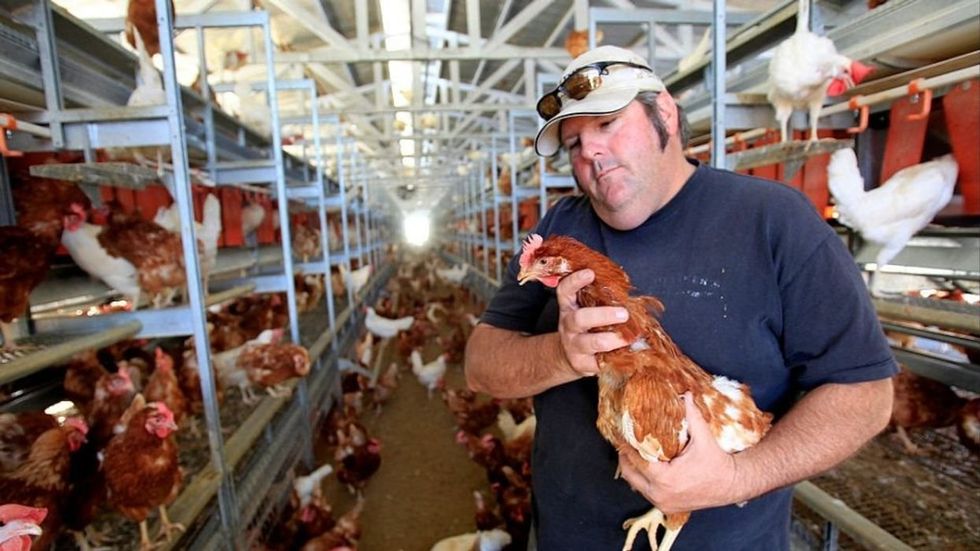 Allen J. Schaben/Getty Images
Allen J. Schaben/Getty Images
Although there were multiple factors at play — including the shift in various states to cage-free hens and record consumer demand — the price spikes were largely driven by the mass exterminations of commercial and backyard bird populations ordered by the USDA in response to HPAI viruses.
Blaze News previously noted that between Feb. 8, 2022 — when the USDA's Animal and Plant Health Inspection Service first confirmed bird flu belonging to the clade 2.3.4.4b in an American commercial flock — and March 2025, the USDA directed the extermination of over 166.41 million birds. Fewer egg-laying birds naturally means diminished supply and higher prices.
'Vaccination in any poultry sector — egg layers, turkeys, broilers, or ducks — will jeopardize the entire export market for all U.S. poultry products.'
In a Feb. 26 op-ed, Agriculture Secretary Brooke Rollins outlined "five steps to tackle avian flu and bring down costs for American families."
In addition to dedicating up to $500 million to help American poultry producers implement "gold-standard" biosecurity measures, increasing financial relief to farms whose flocks are affected by avian flu, removing "unnecessary regulatory burdens on egg producers where possible," and considering temporary import options, Rollins said her agency would "provide up to $100 million in research and development of vaccines and therapeutics, to improve their efficacy and efficiency."
Although egg prices have returned to relatively normal levels, a USDA spokesperson told Blaze News that the agency continues "to evaluate the potential use of vaccines."
"Before making a determination, USDA, in consultation with federal partners, will solicit feedback from state officials, veterinarians, farmers, the public health system, and the American public," said the spokesperson. "USDA is working with federal and state officials and industry stakeholders to develop a potential plan for vaccine use in the United States."
Reuters indicated that industry members anticipate that the agency will complete its plan in July.
RELATED: Cleaning up Biden’s bird flu mess falls to Trump
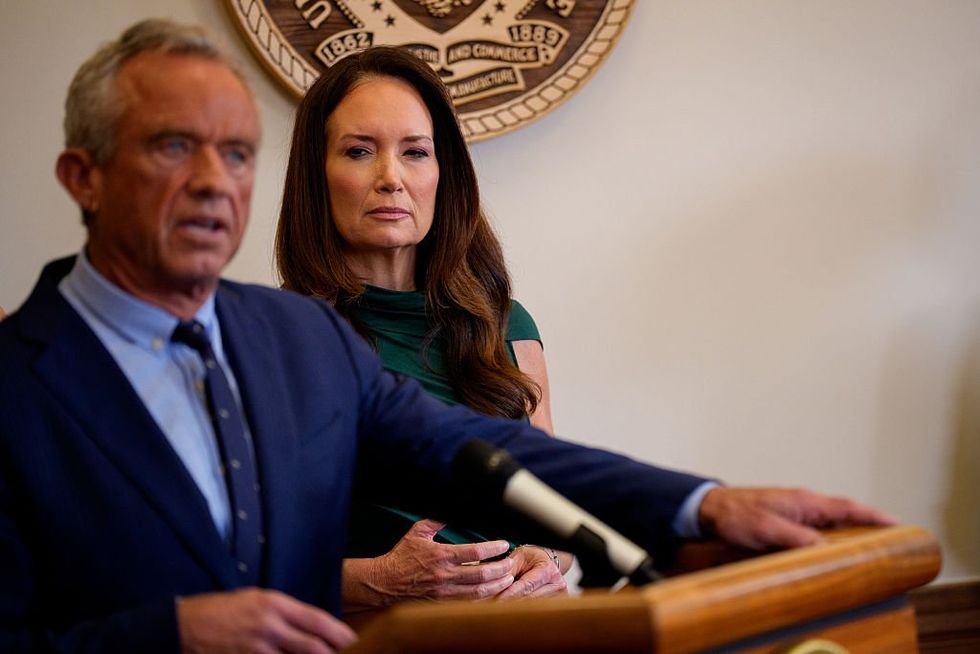 Health Secretary Robert F. Kennedy Jr. (left) and Agriculture Secretary Brooke Rollins (right). Photo by Andrew Harnik/Getty Images
Health Secretary Robert F. Kennedy Jr. (left) and Agriculture Secretary Brooke Rollins (right). Photo by Andrew Harnik/Getty Images
There is some controversy over the potential mass vaccination of poultry on the business side of the equation.
Dr. John Clifford, a former USDA chief veterinary officer who advises the USA Poultry & Egg Export Council, told Reuters that chicken meat producers would be dealt a crushing blow if importers stopped importing U.S. poultry over concerns that vaccines were masking the presence of HPAI in flocks.
Some industry groups are, however, warming up to the idea.
Although the National Chicken Council previously suggested that "vaccination in any poultry sector — egg layers, turkeys, broilers, or ducks — will jeopardize the entire export market for all U.S. poultry products," they have since suggested they are on board with the program if exports go unaffected.
The United Egg Producers are apparently even more gung-ho, having helped hatch a plan suggesting an initial vaccination for baby chicks, a subsequent booster shot, then routine testing.
Nicolas Hulscher, an epidemiologist and administrator at the McCullough Foundation, has suggested mass poultry vaccinations are unwise, telling Blaze News that Kennedy's "worries about mass animal H5N1 bird flu vaccination are fully grounded in robust science."
'Biosecurity remains the best and most prudent approach to mitigate the impact of the disease today.'
When asked about the possibility that the USDA might nevertheless proceed with the mass vaccination agenda, Hulscher said that "the USDA is ignoring the glaring risks of creating dangerous mutant strains with their plans to mass vaccinate poultry against bird flu amidst a bird flu animal pandemic."
Blaze News senior editor Daniel Horowitz drove home the point in a recent op-ed, noting that "leaky, waning vaccines that rely on suboptimal antibodies against rapidly mutating viruses can lead to immune tolerance and imprinting. This can cause the immune system to misfire, resulting in negative efficacy. Any short-term protection against severe disease often comes at a long-term cost as the viruses adapt and grow stronger."
Hulscher suggested that the best way forward when tackling HPAI in domestic flocks is better biosecurity: "Installing surface-air purification systems into farms, combined with iodine-based nasal/oral prophylaxis for farm workers, is a much less risky option than mass vaccination."
On this, it appears the USDA agrees.
The agency spokesperson told Blaze News that in the meantime, "because biosecurity remains the best and most prudent approach to mitigate the impact of the disease today, USDA also continues pursuing collaborative efforts with poultry farmers and companies on education, training, and implementation of comprehensive biosecurity measures."
Like Blaze News? Bypass the censors, sign up for our newsletters, and get stories like this direct to your inbox. Sign up here!
Originally Published at Daily Wire, Daily Signal, or The Blaze
What's Your Reaction?
 Like
0
Like
0
 Dislike
0
Dislike
0
 Love
0
Love
0
 Funny
0
Funny
0
 Angry
0
Angry
0
 Sad
0
Sad
0
 Wow
0
Wow
0




















































